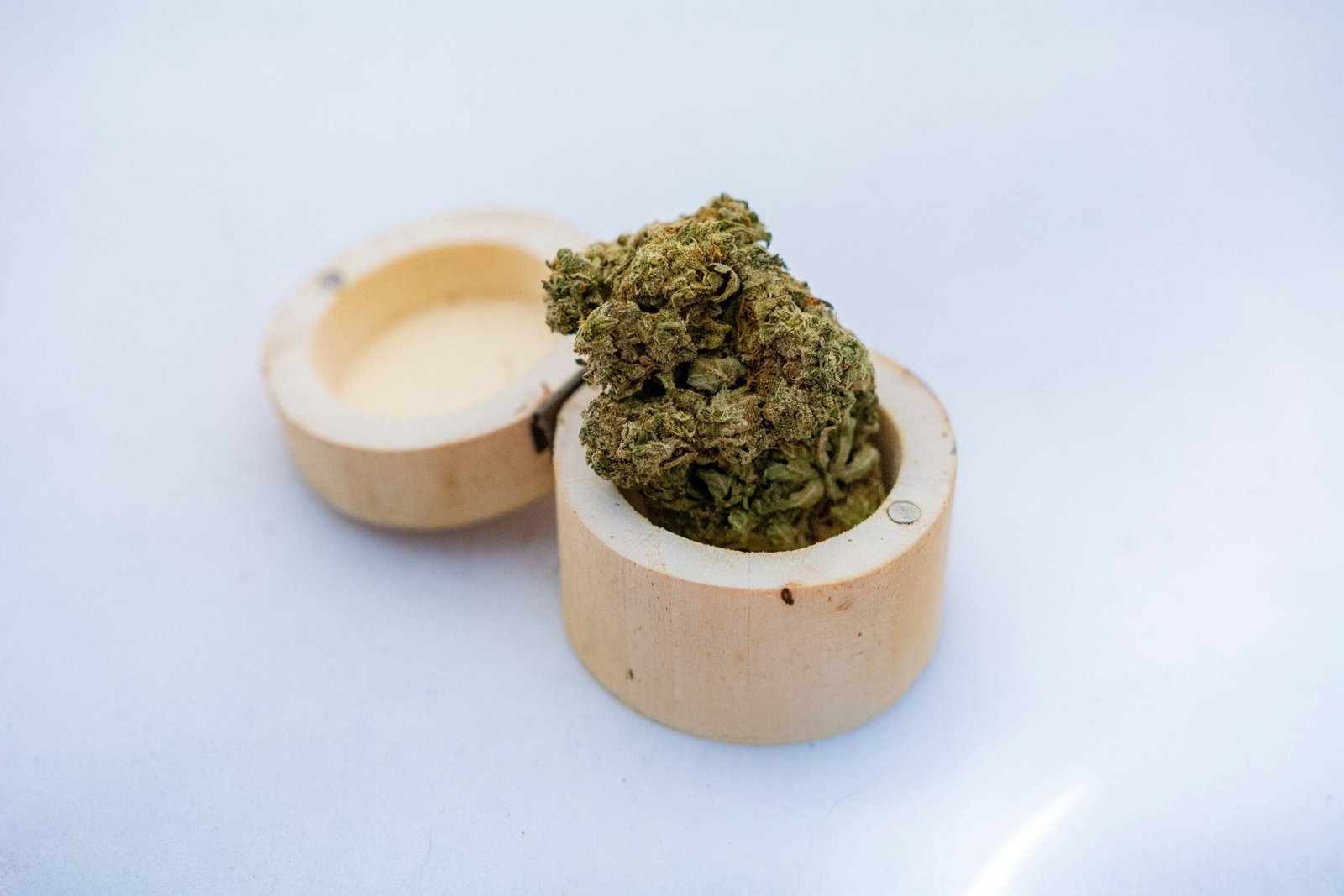
Introduction to Carrots and Skin Health
During the winter months, the skin often becomes dry, flaky, and vulnerable due to a decrease in humidity and a drop in temperatures. As such, maintaining skin health during this season is crucial, and one way to achieve this is through dietary modifications that incorporate nutrient-rich foods. Among these foods, carrots stand out as a particularly beneficial choice. Renowned for their vibrant orange hue, carrots are not only a delicious addition to your meals but also a powerhouse of vitamins and minerals essential for skin vitality.
Carrots are particularly rich in beta-carotene, a precursor to vitamin A, which plays a critical role in maintaining skin health. This unique antioxidant is known for its ability to combat oxidative stress, which can lead to premature aging and skin damage. Additionally, vitamin A aids in skin cell turnover and helps maintain overall skin integrity, making it essential during the harsh winter months. Incorporating carrots into your diet can help provide the necessary nutrients to shield your skin from seasonal challenges.
Moreover, carrots are packed with vitamins C and E, which are also pivotal for promoting skin health. Vitamin C is known for its collagen-stimulating properties, improving skin elasticity and hydration. Meanwhile, vitamin E contributes to skin repair and provides further protection against environmental stressors. Both of these vitamins, along with the fiber and other antioxidants found in carrots, contribute to a balanced diet that can enhance skin appearance and overall health during winter.
Integrating carrots into meals or consuming them as snacks can offer a natural and effective method to support skin wellness, ensuring that you not only meet your nutritional requirements but also foster a radiant complexion throughout the colder months.
Rich Source of Vitamin A
Carrots are widely recognized for being a rich source of Vitamin A, particularly in the form of beta-carotene. This essential nutrient plays a pivotal role in maintaining overall skin health, especially during the winter months when the skin is prone to dryness and loss of elasticity. The body converts beta-carotene into retinol, which is a form of Vitamin A that is crucial for various biological functions related to skincare.
One of the notable functions of Vitamin A is its ability to promote cell regeneration. This process is vital for skin repair, as it helps to keep the skin looking fresh and youthful. Regular consumption of carrots not only fuels your body with this essential vitamin but also supports the natural regenerative processes of the skin. By encouraging the production of new skin cells, Vitamin A helps to minimize the appearance of fine lines and imperfections, enhancing one’s overall complexion.
Another significant benefit of Vitamin A in carrots is its contribution to skin elasticity. As we age, our skin tends to lose its firmness and suppleness, which is often exacerbated during the winter when harsh elements can sap moisture. Vitamin A plays a key role in maintaining skin elasticity, ensuring that your skin remains taut and resilient. A diet rich in carrots can aid in combating the effects of dry winter air, keeping the skin both soft and pliable.
Moreover, the antioxidant properties of beta-carotene contribute to protecting the skin from oxidative stress, a common concern during the winter season. By neutralizing free radicals, carrots can help to bolster the skin’s defenses, promoting a vibrant appearance even in less-than-ideal weather conditions. Thus, incorporating carrots into your winter diet can significantly enhance skin health, making them an invaluable addition to your skincare regimen.
Antioxidant Properties
Carrots are widely recognized for their nutritional value, particularly their rich supply of antioxidants that significantly contribute to skin health. These root vegetables contain high levels of beta-carotene, a powerful antioxidant that the body converts to vitamin A. This conversion is particularly beneficial for skin health, as vitamin A plays a critical role in maintaining skin integrity and promoting cell regeneration.
The skin is constantly exposed to various environmental stressors, including pollutants and UV radiation, which generate free radicals. These unstable molecules can damage skin cells, leading to premature aging, dullness, and other skin issues. Consuming carrots regularly can help combat these free radicals due to their antioxidant properties. By neutralizing oxidative stress, carrots can help reduce the visible signs of aging, such as fine lines and wrinkles, making them an ideal addition to your winter skincare routine.
In winter, when the skin is particularly vulnerable due to cold weather and lower humidity, the skin’s ability to defend itself against environmental stressors becomes compromised. Carrots offer a natural defense mechanism through their antioxidants, providing vital protection against skin damage during this season. Additionally, the hydrating properties of carrots can help maintain the skin’s moisture barrier, further enhancing its resilience against winter dryness.
Incorporating carrots into your diet can thus serve as a proactive measure to enhance skin health. Whether consumed raw, juiced, or cooked, the antioxidants found in carrots manifest their benefits internally, indirectly promoting a clearer and more radiant complexion. Consequently, making carrots a staple in your winter meals can lead to healthier skin and protect it from the adverse effects of seasonal changes, confirming their status as a remarkable ally for skincare during these colder months.
Natural Moisturization
During the winter months, maintaining skin hydration is crucial, as colder temperatures and lower humidity levels can lead to dryness and irritation. Carrots, often recognized for their numerous health benefits, also serve as a potent ally in skin moisturization. One of the key aspects of carrots is their high water content, which plays a significant role in keeping the skin adequately hydrated. Incorporating carrots into your winter skincare routine can help combat the flakiness and discomfort associated with dry skin.
In addition to their water content, carrots are rich in various phytonutrients, including beta-carotene, which the body converts into vitamin A. This vital nutrient is known for its ability to enhance skin cell turnover and promote overall skin health. Beta-carotene acts as an antioxidant, which helps to protect the skin from environmental stressors and maintains its natural moisture levels. Furthermore, vitamin A contributes to the production of sebum, the skin’s natural oil that plays an essential role in hydration.
Moreover, the presence of vitamins C and E in carrots further supports skin moisturization. Vitamin C is integral for collagen synthesis, which helps maintain skin elasticity and firmness, while vitamin E acts as a powerful antioxidant that can aid in preserving the skin’s moisture barrier. By incorporating carrots into your diet or utilizing carrot-based products, you can enhance your skin’s ability to retain moisture, mitigating dryness and irritation commonly experienced in winter.
Ultimately, the hydrating properties of carrots can provide significant benefits for the skin during the colder months. By combining their natural moisturizing capabilities with other skincare practices, individuals can maintain healthy, radiant skin despite the harsh winter conditions.
Improved Skin Tone and Texture
Carrots, renowned for their vibrant color and nutritional benefits, hold significant potential for enhancing skin tone and texture. The key to this transformation lies in beta-carotene, a powerful antioxidant found abundantly in carrots. When consumed, beta-carotene is converted into vitamin A, a vital nutrient that promotes skin health by stimulating cell turnover and regeneration. This process not only aids in achieving a smoother skin texture but also contributes to a brighter, more radiant complexion.
In addition to improving overall tone, carrots also play a crucial role in addressing issues such as blemishes and uneven skin pigmentation. Their natural properties assist in fading dark spots and hyperpigmentation, resulting in a more uniform skin appearance. Furthermore, the antioxidants present in carrots combat free radicals, which are responsible for skin aging and dullness, thus enhancing the skin’s vitality.
Incorporating carrots into one’s skincare regimen can be simple and effective. One practical approach is to consume fresh carrot juice or include grated carrots in salads and smoothies. This not only provides the skin with essential vitamins but also helps detoxify the body, further promoting clear skin. Additionally, topical applications can yield excellent results; one can create a DIY face mask using mashed carrots mixed with honey or yogurt. This nourishing mask can help moisturize the skin while contributing to an even tone.
For optimal results, it is beneficial to maintain a routine that includes carrots both in dietary practices and as part of topical applications. By doing so, individuals can harness the remarkable benefits of this nutrient-rich vegetable, leading to improved skin tone and texture throughout the winter months.
Soothing Properties for Irritated Skin
As winter settles in, many individuals experience irritated or inflamed skin, conditions that can be exacerbated by cold air and indoor heating. Carrots, well-known for their nutritional benefits, also possess remarkable soothing properties thanks to their rich content of vitamins, antioxidants, and anti-inflammatory compounds. These characteristics make carrots an excellent natural remedy for various skin conditions, including eczema and psoriasis.
The anti-inflammatory properties of carrots are primarily attributed to beta-carotene, a potent antioxidant that helps combat oxidative stress and reduce skin inflammation. This makes them particularly beneficial for those who suffer from skin irritations during the colder months. Studies have shown that regular consumption of carrots can improve skin health, providing a foundation for overall well-being. Additionally, the natural oils present in carrots contribute to skin hydration, further alleviating dryness and irritation.
Moreover, incorporating carrots into topical applications can provide immediate soothing effects. For instance, creating a simple carrot mask can effectively calm irritated skin. To prepare this mask, steam a few carrots until they are soft, then mash them into a smooth paste. You can add a tablespoon of honey or yogurt for added moisture and healing benefits. Applying this mixture to affected areas for 15-20 minutes can relieve discomfort and hydrate the skin.
For those looking to benefit from the soothing properties of carrots without the fuss of homemade applications, carrot-infused oils or creams are also available commercially. When applied regularly, these products can help manage skin conditions and provide essential nourishment. The versatility of carrots allows individuals to choose a method that best suits their preferences while enjoying the calming benefits they offer.
Versatile Ways to Include Carrots in Your Diet
As winter approaches, the opportunity to integrate carrots into your daily diet becomes increasingly appealing. This vibrant root vegetable not only enhances meals but also offers numerous benefits for your skin. One of the simplest ways to include carrots in your diet is through hearty soups. A classic carrot and ginger soup, prepared with fresh ginger and spices, provides warmth and comfort while delivering essential nutrients that help maintain healthy skin.
Another versatile option is to incorporate carrots into salads. Shredded carrots add a delightful crunch to winter salads, complementing ingredients such as leafy greens, nuts, and citrus fruits. The combination of textures and flavors not only makes the dish visually appealing but also ensures you enjoy the skin-nourishing properties of carrots. Additionally, you can create a vibrant carrot salad with a zesty lemon vinaigrette, allowing the natural sweetness of the carrots to shine through.
If you are seeking a refreshing beverage, carrot juice has garnered popularity for its health benefits. Blending fresh carrots with apples and a splash of lemon creates a revitalizing juice rich in vitamins and antioxidants known to support skin health. For a quick snack, consider roasting carrots with a drizzle of olive oil and your choice of herbs. This not only enhances their sweetness but also makes for a delightful treat that contributes to overall wellness.
Lastly, consider incorporating carrots into baked goods, such as carrot muffins or bread. These treats can be deliciously satisfying while providing the skin-boosting nutrients that carrots are well-known for. Overall, with such a variety of options, adding carrots to your winter diet is both simple and enjoyable, ensuring you reap the benefits of this nutritious vegetable.
Topical Uses: Carrot-Based Skin Care
Carrots, known for their rich nutritional profile, are becoming increasingly popular in topical skincare remedies. Their high beta-carotene content translates into potential benefits for the skin, making them an excellent choice for homemade face masks and scrubs. These treatments can nourish, hydrate, and rejuvenate the skin, particularly valuable during the winter months when skin tends to become dry and flaky.
Creating a carrot-based face mask is both simple and rewarding. To prepare a basic mask, start by boiling a medium-sized carrot until soft. Allow it to cool, then mash it into a smooth paste, mixing in a tablespoon of honey, which possesses natural moisturizing properties. Apply this mixture to the face and leave it on for approximately 15-20 minutes before rinsing with lukewarm water. This mask not only hydrates the skin but also imparts a healthy glow due to the vitamins present in carrots.
In addition to masks, carrot scrubs can effectively exfoliate the skin. A feasible recipe involves finely grating a carrot and combining it with equal parts sugar and olive oil. This scrub can be gently massaged onto the skin in circular motions, promoting circulation and removing dead skin cells. The antioxidants in carrots work synergistically with the exfoliating properties of sugar, enhancing skin texture and appearance.
While these homemade remedies are beneficial, it is essential to perform a patch test before applying them to the entire face. This precaution helps ensure that the skin does not react adversely to any of the ingredients used. By integrating carrot-based skincare into your winter routine, you can enjoy the numerous advantages that they offer, leading to healthier, more radiant skin.
Conclusion: Embracing Carrots for Winter Skin Care
As we have explored the multifaceted benefits of incorporating carrots into our winter skincare routines, it becomes evident that these orange vegetables are more than just a culinary staple. The five noteworthy effects of carrots on skin, particularly during the colder months, highlight their significance in promoting skin health. Firstly, carrots are rich in beta-carotene, which not only provides that lovely glow but also acts as a natural sunblock, protecting the skin from harsh weather elements.
Additionally, the high vitamin A content found in carrots aids in skin cell production and repair, essential for maintaining a youthful appearance during the winter. This nutrient helps balance the skin’s moisture levels, preventing the dryness that often contributes to irritation and flakiness in winter. Furthermore, the antioxidants present in carrots combat the effects of environmental stressors, effectively preventing premature aging and maintaining optimal skin health.
Moreover, carrots have anti-inflammatory properties, making them an excellent choice for those with sensitive or reactive skin during the winter months. These properties help reduce redness and swelling, ensuring a more even complexion. Lastly, incorporating carrots into your diet can enhance overall hydration, which is crucial for skin vitality during this harsh season.
In light of these benefits, it is clear that carrots deserve a prominent place in both our diet and skincare regimens. By making intentional choices to include carrots—whether through fresh juices, salads, or topical applications—we can support our skin’s health and resilience against winter’s challenges. Embracing the natural goodness of carrots will undoubtedly lead to healthier, glowing skin, allowing us to face the winter months with confidence.
RELATED POSTS
View all


